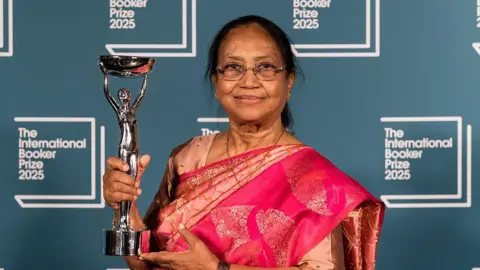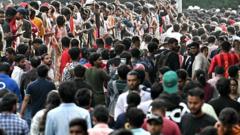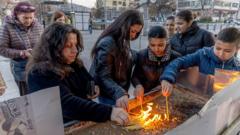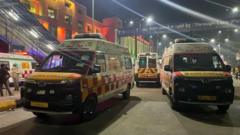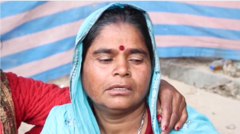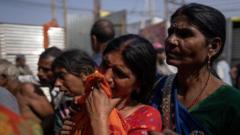The pre-dawn chaos at the Maha Kumbh Mela festival in Prayagraj, India, sent shockwaves through a massive gathering of millions of devotees and raised alarm over the swift restoration of order. As ambulances rushed to transport the injured to hospitals, local officials quickly resumed the age-old traditions at the festival. The chaotic scene unfolded amidst "A.I.-powered" video surveillance, which had been established to enhance safety. Despite the apparent preparedness, the release of information regarding fatalities took nearly 15 hours, drawing ire and skepticism from the public.
While officials provided regular updates showcasing the number of devotees completing their sacred bathing rituals, no initial death toll was revealed during this critical time. The disparity in communication raised eyebrows, with many wondering if local authorities were more focused on maintaining a positive image rather than addressing the tragedy directly.
As the dusty streets of Prayagraj became a backdrop to this profound event, the helicopter showering rose petals on spiritual leaders felt like a stark contrast to the grim consequences of the stampede. In light of upcoming elections, many called for transparency, fearing that the delayed updates were an attempt to shield political figures from backlash resulting from the chaos.
The ramifications of this incident resonate beyond immediate concerns over safety and logistics; they also strike at the heart of political accountability in India. With citizens demanding answers, the confrontation between public sentiment and political interests raises critical questions about governance, responsibility, and the genuine care for the lives lost amidst a sacred event.


